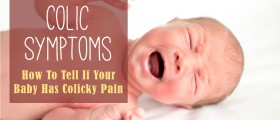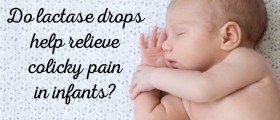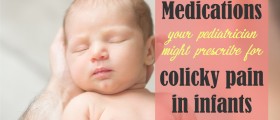
Colic is not a disease, it is a constant and inexplicable crying of a baby aged between two weeks and five months. This condition is not understood well because colic affects babies who are otherwise healthy. The causes because of witch colic occurs are not clearly specified. However, it can be assumed that the colic is caused by inhaling large amounts of air that causes bloating and colicky pain. Furthermore, the causes can be food intolerance, underdeveloped digestive tract, or excessive feeding. Also, milk, tension and lack of sleep can be considered as the causes of colic in babies.
A baby suffering from colic usually starts to cry after breastfeeding. This is one of the symptoms of colic. The baby is often crying out loudly, there is a sudden and furious cry which can last up to 4 hours, and the parents usually cannot do anything to end the crying. Child's face often turns red, the belly becomes prominent. The baby usually clenches tightly fists and has cold feet. These are the symptoms which occur most frequently. What is interesting about colic is the fact that it often occurs in the afternoon or evening when the parents are exhausted. Belching or bowel movement may stop colic.
Parents sometimes can even worsen the symptoms, since in these situations, they tend to exaggerate in feeding babies trying to ease crying, or give them food that contains high levels of sugar, such as juices, which creates additional gas in the intestines. Babies also feel the negative feelings of their parents such as irritability, fear, impatience, anger, anxiety, which leads to deterioration of symptoms of colic. Colic has no negative effects on the baby once it stops. There is no some specific medicine for the treatment of colic, but it is recommended that parents bath their babies in warm water. The parents can add some lactose in the milk to ease colic.
When the first symptoms appear it is important that the parents visit and consult the doctor because all the symptoms mentioned above can also be the results of some others problems, such as the eczema or gastro-oesophageal reflux disease.
There are cases when it is crucial to inform the physician. If the baby has fever or high temperature while the hands and feet remain cold, if it has weak, high-pitched cry, or if it takes in less fluids then normal, the parents must immediately call the doctor. Other alarming signs are also when baby urinate less, has blood in stool, has a seizure, turns pale, has breathing problems, or has stiff neck.
















Your thoughts on this
Loading...